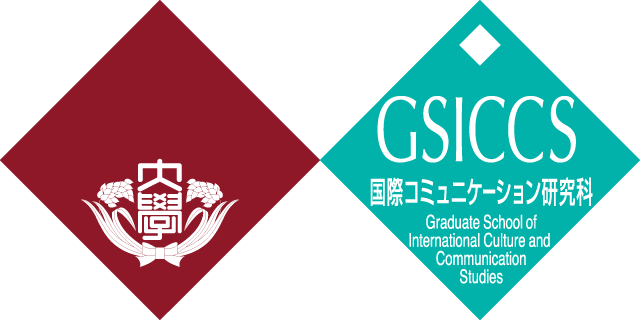- News
- RAMJAG, Anastasia Kiara
RAMJAG, Anastasia Kiara

- Posted
- Mon, 18 Dec 2023

- Program:Master’s Program
- Enrollment in:September 2022
- Study Plan:Language and Communication
- Directed Research: Language and Society
Message
Language is, by nature, alive. It is a breathing and ever-evolving concept. It is one that requires constant adaptation, particularly in light of technological advances and the growing reach of globalisation. With specific regard to the latter, there are several international programmes that have been implemented which attempt to unify literary, linguistic, and pedagogical approaches in order to foster closer grassroots ties among countries. One such programme is the esteemed Japan Exchange and Teaching (JET) Programme, established in 1987 by the Government of Japan. My research takes on a multidisciplinary approach to the English as a Foreign Language (EFL) classroom in Japan by exploring the case of Assistant Language Teachers (ALTs) from Trinidad and Tobago on the JET Programme. It focusses on the development of pedagogical identity and its implications for team-teaching and learner attitudes towards non-dominant variants of English. The study is being conducted under a framework of psycho-sociolinguistics and intercultural communication theories.
Although the JET programme has been instrumental in internationalisation efforts, a critical inquiry might suggest that it has had somewhat of a reverse effect, as selection of successful candidates favours those from the dominant varieties of English archetype; especially from the United States of America (USA), while generally ignoring non-dominant varieties of English, such as those from the Caribbean. Statistics from Japan’s Council of Local Authorities for International Relations (CLAIR), show that in 2023, ALTs employed under the JET programme number: 2920 from the USA, 724 from the United Kingdom (UK), and 550 from Canada. In comparison, from Caribbean countries, the figures are as follows: 11 from Barbados, 1 from Saint Vincent and the Grenadines, 53 from Jamaica, and 59 from Trinidad and Tobago. These figures illustrate a contrast to recent academic advancements in English language pedagogy which encourage the teaching of English as a global language, acknowledging variation comprehensively. Furthermore, what compounds the issue is that ALTs often do not receive any formal training and are often unaware of the role they play in supporting the conventions of English language education in Japan.
This research project seeks to challenge the hegemony of English language education in Japan and to catalyse a paradigm shift in the English language departments at the local level, towards the incorporation of non-hegemonic varieties of English and anglophone culture. It intends to open a wider form in which these concerns can be addressed by those directly affected, and to detect issues regarding affective factors such as motivation and anxiety in Teaching English as a Second Language (TESOL), from both teacher and student perspectives. The research method to be employed is primarily qualitative and will be based on the triangulation of three sets of data collected over a year via a methodology known as narrative inquiry. The research questions to be answered are:
- How do ALTs from Trinidad and Tobago construct language teacher identities?
- How do they navigate the curricula with reference to linguistic and cultural content?
- What are the attitudes of colleagues and students towards Trinbagonian language varieties?
